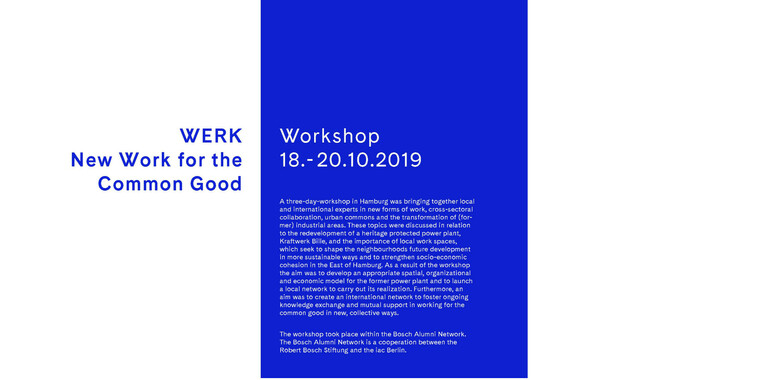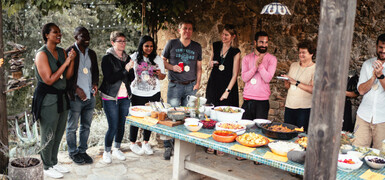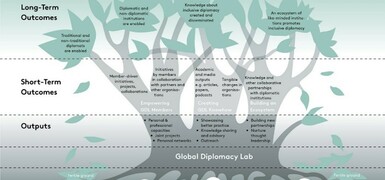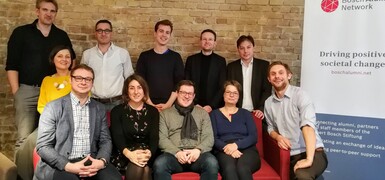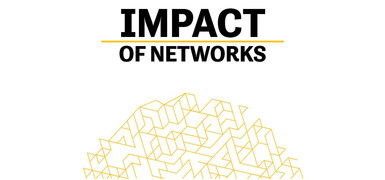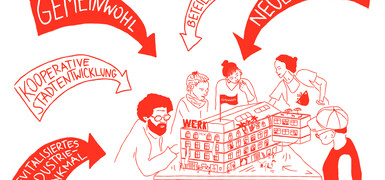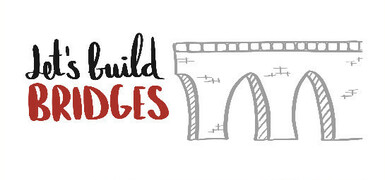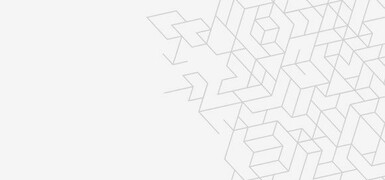
WERK - New Work for the Common Good
Peer to Peer Support creates new concepts, new narratives, new ways to organize

Our cities are made by its residents, workers, and creators—not by investors. Although there are alternatives to the traditional ways our cities are governed, this field remains a largely unexplored niche. How can we establish new organizational forms and shared labor models that focus on the common good? How can we create new ownership and operating models?
The willingness to try out new concepts requires courage, safe places for exchange, and a lot of initiative from all involved parties. But by working together, alternative solutions can be created and tested that are driven by the common good instead of profit.
"WERK – Haus Neuer Arbeit" in Hamburg Hammerbrook is one such example of success. The initiative is working to secure a permanent, community-oriented space in the Bille power plant that can be used for cultural, commercial, and social purposes. At the beginning of 2021, the German Federal Ministry of the Interior for Construction and Home Affairs promised the group funding of around EUR 8 million as part of the "National Projects in Urban Development" program. Additionally, they received co-financing from the City of Hamburg. The iac Berlin and members of the Bosch Alumni Network have also been active in the project, contributing to a 2019 workshop that ultimately became a key turning point for the initiative.
At a glance:
Challenge: To create a community-oriented space with new models of ownership and shared labor that focus on the common good.
Approach: A strategic workshop incorporating stakeholder input and diverse expertise to identify key topics and develop focused recommendations.
Solution: A project design with clear approaches to collaboration, shared values, inclusion of neighbors, shared labor, and financing.
Potential long-term impact: WERK could be a model for alternative, community-based urban development in Germany and beyond, which focuses on the common good rather than profit.
Kicking-off and establishing valuable contacts
“The workshop was the real starting point. It was here that our current core team really came together, and they were able to use the results of the workshop for our application to the Federal Ministry. We did interviews with city representatives ahead of the workshop, and were able to get them involved as well. The workshop also helped us to get the Edith Maryon Foundation on board as a cooperation partner, which gave our project even more persuasive power,” recalls Dorothee Halbrock from the non-profit HALLO: e.V., a key organizer of the "WERK – Haus Neuer Arbeit" project.
From the beginning, the challenge was to be ‘taken seriously at all levels.’ “This was especially true with the city representatives and the private owner of the building. To do this, we had to develop a joint operating and ownership model and really sharpen the content of the concept,” says Veit Wolfer, another member of the WERK project team. In need of support, they responded to an open call for applications in the Bosch Alumni Network in the summer of 2019, and submitted their proposal to hold a strategic workshop. The workshop would address two key topics:
- Content: New ways of working for the common good
- Practical implementation: Ownership and operating models
Both topics would be covered from a global and local perspective in order to develop a model project that could be replicated internationally.
New Work for the Common Good
In October 2019, 12 members of the Bosch Alumni Network came together with local stakeholders for the "New Work for the Common Good” workshop. After an intensive weekend of discussion and collaboration, the group produced a 48-page document with their results and recommendations.
Prior to the workshop, they had conducted interviews with the initiators of WERK, political representatives, local administrators, potential and existing users, and the building’s owner. The results of the interviews served as the basis for their discussions and were eventually whittled down to five focused topics with clear recommendations:
- Conditions for Collaborations
- Ecosystem of Shared Values
- Including and Exchanging with the Neighborhood
- Productive, Re-Productive and Common Work
- Solidarity in Financing
The result was a successful project design that can also serve as a model for other aspiring initiatives. Even now, the organizers still look back and find inspiration in the approaches used to co-design and evaluate the workshop.
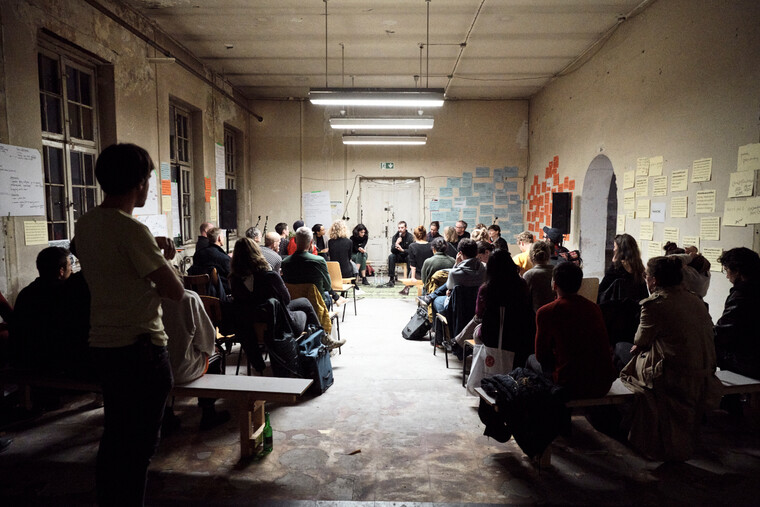
Conflicts as creative potential
In addition to supporting the strategic process, personal contacts from the Bosch Alumni Network greatly benefited the project. "We gained a lot by continually exchanging ideas with people who had accompanied our project over several months, through all of its ups and downs. By expanding our contacts to get an international perspective, we were able to better use the diverse expertise received to develop the final project design, which we ultimately submitted in our official applications," Dorothee recounts.
The intensive work in and around the workshop welded WERK's core team together. But not everything always runs smoothly. "At Kraftwerk Bille, we need to secure and create spaces for art and culture, research, production, and social activities. This involves a lot of diverse interests, which can also create conflict. And these conflicts must be negotiated—not overcome," explains Nina Manz from the WERK team.
The issues range from fundamental differences in perspective about the world—such as private profit vs. the common good—to individual interests about how space is used, to the constant, palpable tension between creative use and the upgrading process. In effect, these are global issues playing out on a local level.
A model project with country-wide appeal
Once successfully implemented, WERK could serve as a model project for the entire country. A local space designed by and for all interested parties would represent a viable alternative to the traditional system of investment-led, urban development. That would put WERK at the forefront of this movement alongside other successful projects such as fux e.G. in the former Viktoria Kaserne in Hamburg or ExRotaprint gGmbH in Berlin.
"A realistic vision for the future would be that the working groups grow to become a cooperative that connects all of the space’s users and can serve as a field to experiment with other communal forms of ownership and shared labor. The current, private owner of the Kraftwerk Bille sells a building at a fair price to WERK eG, and we use and renovate it in parallel, supported by the city of Hamburg and the federal government. Workers move in, we work, eat, and laugh together. In the summer, we jump into the Bille, and in winter, the sauna," says Dorothee, dreaming.
If you want to support WERK's enthusiastic team, check out www.hallohallohallo.org/de/werk or follow them on Instagram @hallohallohallo. Or even better: Join in!
"WERK is a place that is created and supported by its people. This requires input and reliable structures that are shaped by all of us. Get in touch and join a working group by contacting us at: werk@hallohallohallo.org!”
If we piqued your interest and you want to learn more about the project, the results or our workshop approach, please get in touch with:
Lucie Menz
Coordinator Bosch Alumni Network
lucie.menz@boschalumni.net
